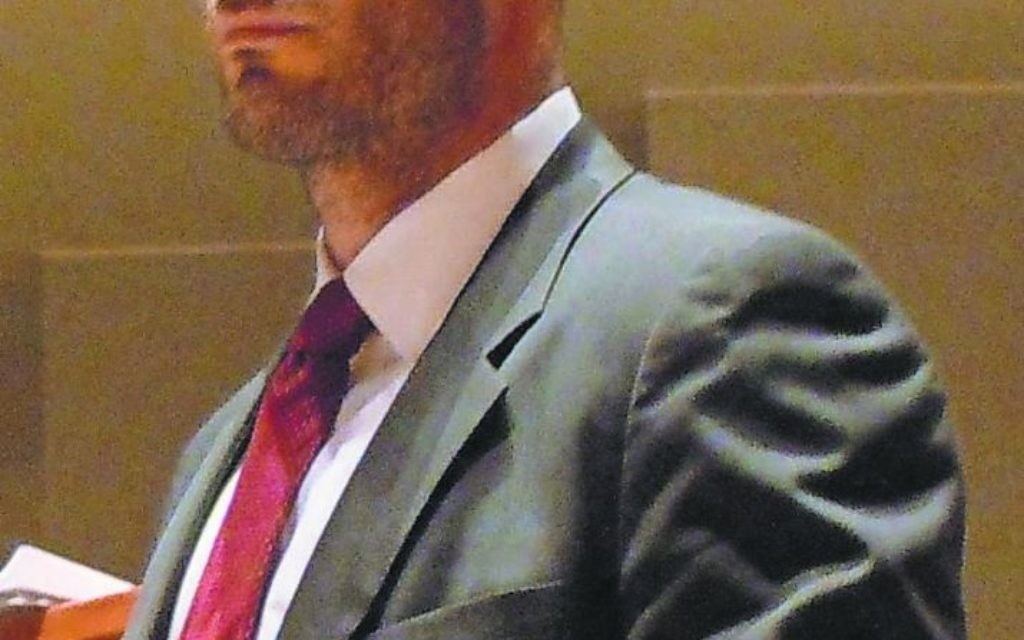FIDF Expert: Deal Makes World Unsafe
The reality of the Iran nuclear deal is a world in which the world’s leading state sponsor of terrorism has many additional billions of dollars to spend on its own military and to funnel to its proxies in Lebanon, Gaza, Syria and elsewhere.
Avi Jorisch, the founder of the Red Cell Intelligence Group who formerly tracked terrorists and their finances for the State and Defense departments, tried to paint a realistic if grim picture of that world during a Friends of Israel Defense Forces briefing at Congregation Etz Chaim on Tuesday night, Nov. 3.
“This man’s life is going to be made much more difficult,” Jorisch said about the event’s other featured speaker, IDF Lt. Roi Levy, a Special Forces paratrooper.
Get The AJT Newsletter by email and never miss our top stories Free Sign Up
Estimates vary of the exact amount of money Iran will receive when foreign-held assets are unfrozen under its agreement not to develop nuclear weapons for at least the next decade. President Barack Obama has used a figure below $50 billion, while critics of the deal have used numbers between $150 billion and $200 billion.
Jorisch talked about $100 billion to $150 billion going to Iran early next year, plus additional billions continuing to flow into Iran as it is cleared to sell oil on the international market. He said the deal gives businesses cover to engage in commerce with Iran, thus producing an even greater windfall for the government in Tehran.
Even if Iran does spend most of the money to rebuild its shattered economy, it will divert at least some of the cash to Hezbollah, Hamas, the Houthis in Yemen and other groups that support Iran’s international adventures. Those activities include Iranian troops assisting government forces in Syria.
An increase to $2 billion a year for Hezbollah, for instance, would more than double its current $750 million in annual aid from Iran.
Without being specific, Levy said his commanders are training their troops to be ready for any scenario involving an attack from any direction.
But Jorisch said Israel can handle the conventional threat posed by Iran. A bigger problem in the long term, he said, is nuclear proliferation.
The nuclear deal acknowledges that Iran has a right to enrich fissile material, something the United States and its allies had long opposed under the Nuclear Non-Proliferation Treaty.
If Iran has the right to enrich nuclear material, there’s no basis to stop other Middle Eastern countries from asserting the same right. Soon enough, Jorisch said, Saudi Arabia, the Arab Gulf emirates, Egypt and Turkey will launch their own nuclear efforts, creating a nuclear arms race in one of the least stable regions in the world.
“Does this agreement sound like it will make the world a safer place?” he said. He called the situation “a nightmare.”
He said he understands the arguments in the deal’s favor, including extending Iran’s timeline to get a nuclear weapon and establishing a monitoring system with improved information and intelligence.
But “10 years is the blink of an eye,” Jorisch said.
Still, Jorisch said, the state of Israel and the IDF are “beacons of hope.”
“Israel by its sheer existence is making the world a better place,” he said.
Asked about the possibility of Iran scuttling the deal, Jorisch said it’s highly unlikely. More likely is that we’ll see an Iranian Embassy in Washington within a few years.
—
Safety in Israel
Rabbi Shalom Lewis, just back from a trip to Israel, reassured to crowd at the FIDF event that the Israel Defense Forces and other security forces are doing a good job in countering the seemingly random series of terrorist knife and care attacks by Palestinians.
Rabbi Lewis praised the “thin green line” for standing between civility and violence. “It’s a wonderful feeling of safety and security.”






comments